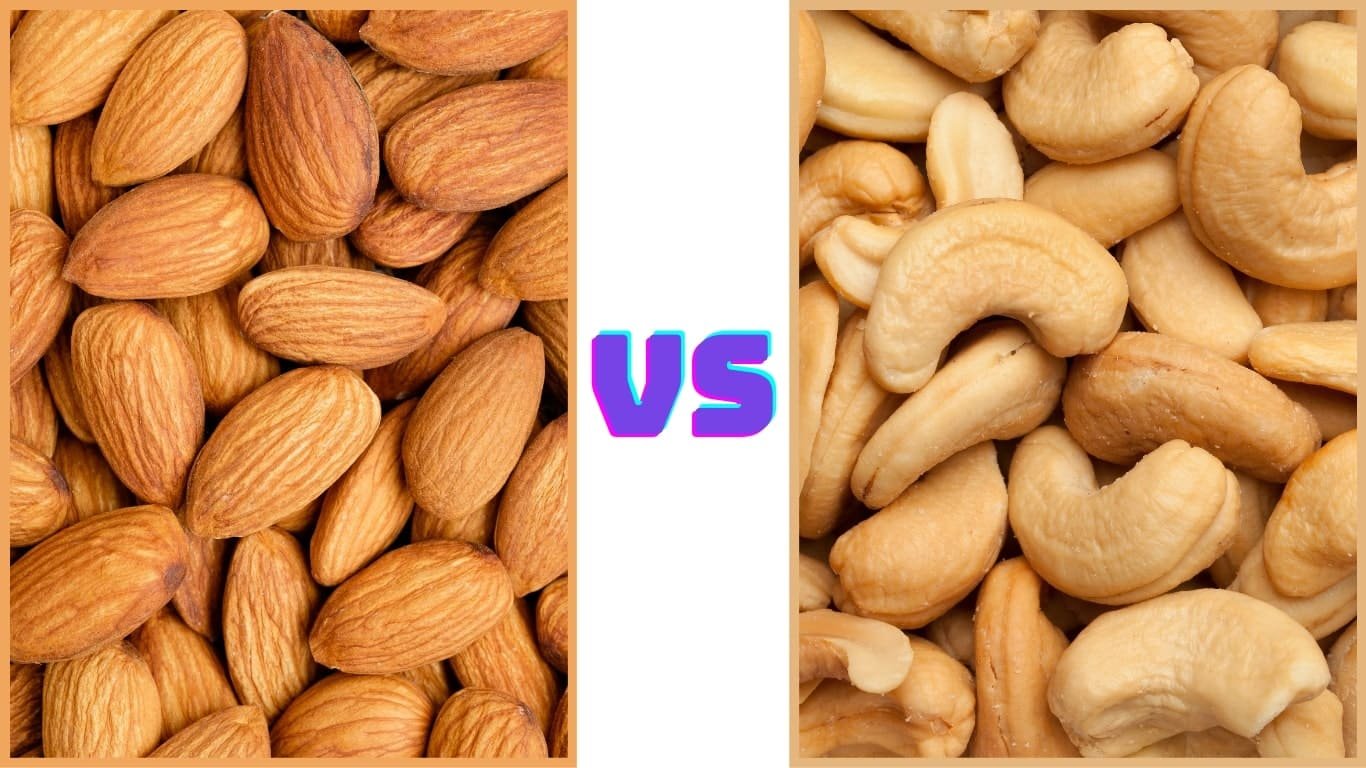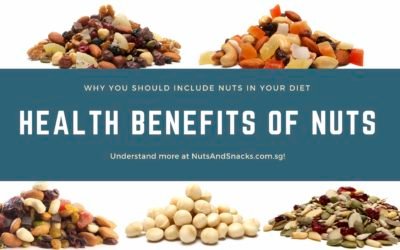
Nuts are nature’s bite-sized nutritional powerhouses, offering a combination of taste, texture, and health benefits that make them a popular snack choice around the world. Among the numerous nut varieties available, almonds and cashews stand out not only for their delightful flavours but also for their impressive nutrient profiles. In this nutty showdown, we’ll delve deep into the attributes of almonds and cashews, comparing their nutritional value, health benefits, culinary uses, and more, to help you decide which nut deserves a prime spot in your pantry.
The Nutritional Face-Off
Almonds Nutritional Content
Nutrition Overview: Almonds, often touted as one of the healthiest nuts, are nutrient-packed. They are a rich source of heart-healthy monounsaturated fats, fiber, and essential vitamins and minerals.
Calories: A one-ounce (28-gram) serving of almonds contains approximately 160 calories.
Protein: Almonds are relatively high in protein compared to other nuts, with about 6 grams of protein per ounce.
Fiber: They are a good source of dietary fiber, providing around 3.5 grams per ounce, which aids in digestion and helps you feel full.
Healthy Fats: Almonds are abundant in monounsaturated fats, particularly oleic acid, known for their heart-protective properties.
Vitamins and Minerals: Almonds are rich in vitamin E, magnesium, riboflavin (vitamin B2), and phosphorus.
Antioxidants: They are packed with antioxidants, including flavonoids and phenolic compounds, which combat oxidative stress in the body.
Health Benefits: Regular consumption of almonds has been associated with various health benefits, including improved heart health, better weight management, and reduced risk of chronic diseases like type 2 diabetes.
Cashews Nutritional Content
Nutrition Overview: Cashews are creamier in texture and have a distinct, buttery taste. They are nutrient-dense and offer a unique nutrient profile compared to almonds.
Calories: A one-ounce (28-gram) serving of cashews contains roughly 157 calories, making them calorically similar to almonds.
Protein: Cashews contain slightly less protein than almonds, providing about 5 grams per ounce.
Fiber: While not as high in fiber as almonds, cashews still offer approximately 1 gram of dietary fiber per ounce.
Healthy Fats: Cashews are also a good source of heart-healthy monounsaturated fats, including oleic acid.
Vitamins and Minerals: They are particularly rich in copper, which plays a role in various metabolic processes, as well as magnesium, phosphorus, and vitamin K.
Antioxidants: Cashews contain antioxidants like anacardic acid and cardanols, which may help protect against cell damage.
Health Benefits: Cashews have been linked to improved heart health, weight management, and bone health due to their nutrient content.
Which Nut is Better for Heart Health?
Both almonds and cashews contribute positively to heart health, thanks to their monounsaturated fats and other nutrients. These fats can help reduce levels of “bad” LDL cholesterol in the bloodstream, lowering the risk of heart disease. Additionally, the antioxidants found in both nuts combat oxidative stress and inflammation, which are contributing factors to cardiovascular problems.
Almonds, in particular, have been extensively studied for their heart-protective properties. Consuming almonds has been associated with improved cholesterol levels and reduced blood pressure. These benefits make almonds a top choice for those looking to support their heart health.
Cashews, while slightly lower in monounsaturated fats compared to almonds, still offer heart-healthy benefits. Their magnesium content is noteworthy, as magnesium plays a crucial role in maintaining a healthy heart rhythm and blood pressure.
Comparison of the Nutrients of Almonds vs Cashews
Which Nut Has More Fiber?
Fiber is essential for digestive health and helps keep you feeling full, aiding in weight management. Both almonds and cashews contain fiber, but almonds take the lead in this category. They provide significantly more fiber per ounce compared to cashews, making them a more filling and satisfying snack.
Which Has More Protein?
Protein is a vital macronutrient that supports muscle growth and repair, among other functions. Almonds and cashews are decent sources of plant-based protein. While almonds contain slightly more protein per ounce, the difference is minimal. Both nuts can be included in a balanced diet to meet your protein needs, especially if you follow a vegetarian or vegan diet.
Essential Vitamins and Minerals Comparison
Both almonds and cashews offer essential vitamins and minerals that contribute to overall health. Almonds are particularly rich in vitamin E, an antioxidant that supports skin health and acts as a powerful free-radical scavenger. Cashews, on the other hand, excel in copper content, a mineral crucial for the formation of red blood cells and the maintenance of healthy bones and nerves.
Difference of Use in the Kitchen
Culinary Versatility
Almonds and cashews have unique flavours and textures that lend themselves to various culinary applications.
Almonds have a slightly sweet, nutty taste and a crunchy texture. They are versatile ingredients in both sweet and savoury dishes. Almond slices or slivers are often used as salad toppers, and almond butter is a popular alternative to peanut butter. Almond flour is a gluten-free option for baking, and almond milk is a dairy-free choice for lactose-intolerant individuals.
Cashews have a creamy, buttery texture and a mildly sweet flavour. They are frequently used in creamy sauces and dips, like vegan cashew cheese and cashew-based salad dressings. Cashews can be ground into a smooth paste to create cashew butter or used in dairy-free ice creams and desserts for their rich and smooth consistency.
Culinary Showdown: Almond vs. Cashew Butter
One area where almonds and cashews often go head-to-head is in the form of nut butter. Let’s take a closer look at almond butter and cashew butter:
Almond Butter
- Almond butter is praised for its robust almond flavour and slightly grainy texture.
- It’s a fantastic source of vitamin E and healthy fats.
- It pairs wonderfully with fruits, toast, and in smoothie bowls.
- Almond butter can also be incorporated into savoury dishes like almond butter sauce for vegetables or almond-crusted chicken.
Cashew Butter
- Cashew butter boasts a creamy, velvety texture and a milder, buttery taste.
- It’s high in monounsaturated fats, magnesium, and copper.
- Cashew butter’s smooth consistency makes it an ideal ingredient for dairy-free sauces, creamy soups, and salad dressings.
- It pairs exceptionally well with sweeter flavours and can be used as a base for vegan cheesecakes or as a topping for oatmeal.
- In the almond butter vs. cashew butter debate, the choice ultimately depends on personal preference and the specific flavour and texture you desire for your dishes.
Conclusion
In the almond vs. cashew showdown, both nuts emerge as nutritional powerhouses with unique characteristics and culinary uses:
Almonds win in the fiber category and are slightly higher in protein. They are an excellent choice for heart health and are versatile in both sweet and savoury recipes. Almonds are a filling snack option and a great addition to salads, smoothies, and baked goods.
Cashews excel in the copper department and offer a creamy texture and mild, buttery flavour. They are ideal for creating creamy sauces, vegan cheeses, and desserts. Cashews contribute to heart health and overall well-being.
Ultimately, the “winner” depends on your individual taste preferences and dietary goals. Both almonds and cashews can find a place in your diet, providing an array of nutrients and adding delectable flavours and textures to your culinary adventures. So why not enjoy the best of both worlds and savour the delightful nutty goodness that almonds and cashews have to offer?






